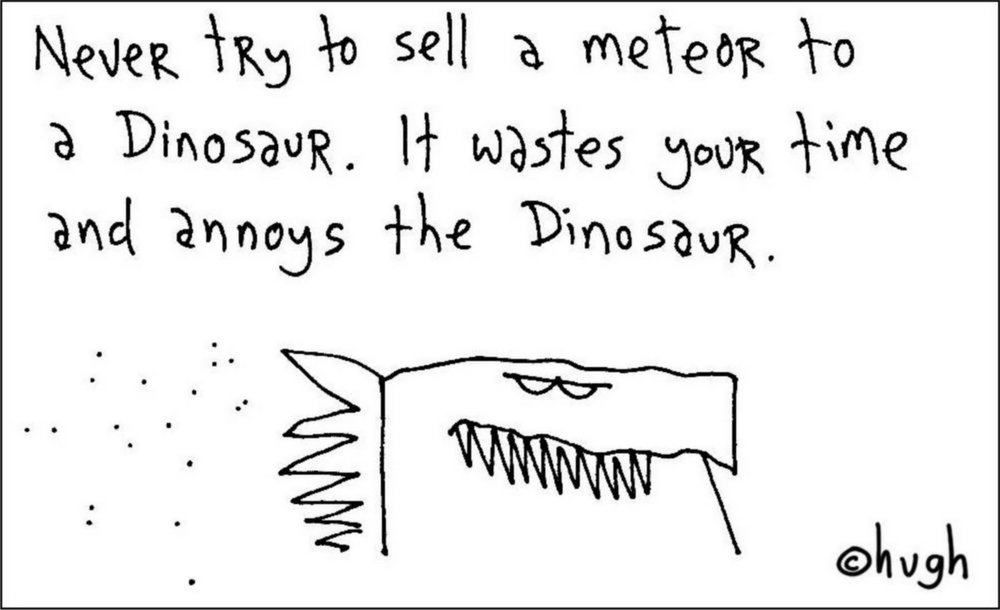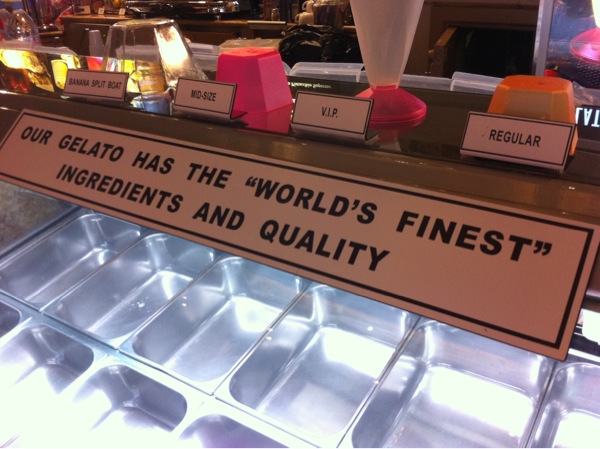Problems
The product being sold is unremarkable to whom it's being offered (which makes the salesperson annoying in the eyes of the prospect). This problem has two parts, the product is inferior and/or you have the wrong audience. Both are equally problematic. Having the wrong audience relates to the next item.
The sales person doesn't seek to understand the true motivation of the buyer. The best example of this is the unexpected telephone solicitation (usually done by a person you've never met, who hasn't experienced your product or service and who hasn't done any research to understand your goals...annoying and usually results in a hang-up).
Solutions
Make stuff that the masses will ignore (because it's not easily understood), but a few will find remarkable. Make stuff that some people can't live without. Make stuff that is scarce. Make stuff that matters. Make something where the act of making it is appreciated (often more than the thing being made). Think handcraft. Think like an artist…because you are one.
Find the few who appreciate, enjoy and find meaning in what you do. Connect with them…exchange ideas. Build a tribe, an audience who trusts you. Then sell them your stuff. And don't bother anyone else…it's annoying.
Image credit to Hugh McCloud (I bought this print for a friend of mine…wish I would have bought two).


